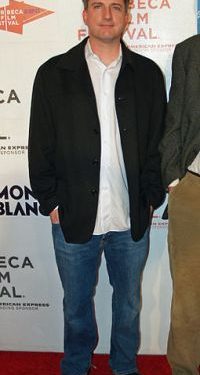As I wrote in my “From the Desk” last semester, I was deeply in love with Grantland, and was stunned and upset to see it go. Funeral marches played in my head the entirety of October. I was on the site daily, reading everything from football statistic deep dives to an explanation of why the ocean is the best recurring movie character titled “The Sea is Dope.” I also not-so-secretly harbored a desire to work at Grantland.
So when Bill Simmons announced that he was going to be trying a longform site again, this time under the guise of The Ringer, I was excited, but also highly skeptical. I knew some of my favorite writers from Grantland would be headed to The Ringer when it got up and running or when their ESPN contracts ran out. But at the same time, I wasn’t convinced that this kind of perfect lightning could be harnessed again.
The Ringer has been active for three months. In internet terms, that’s probably equivalent to a three-month-old baby. However, in those three months, The Ringer seems to have captured all the charm that Grantland had before its closing.
A major reason that Simmons was able to capture Grantland’s charm is because he was still able to cultivate a ridiculous amount of talent for The Ringer. If I told you it would lose The Ringer wouldn’t transplant their top MLB writer, NFL writer, or NBA writer/best sportswriter doing it right now — Jonah Keri, Bill Barnwell and Zach Lowe, respectively — along with a college football and pop culture writer in Holly Anderson and co-founder/editorial director Dan Fierman, among a slew of others, would you think it had a chance?
So why has The Ringer been able to become so good so quickly, even though they are just now getting back some writers, like Shea Serrano and Ben Lindbergh? The answer can be summed up in four names: Sean Fennessey, Juliet Litman, Mallory Rubin and Chris Ryan. Those four were high level editors at Grantland and all jumped from there to the yet-to-be-named Ringer shortly after Bill Simmons was fired by ESPN. There were reports that Grantland actually could have survived without Simmons, with Fennessey being as editor-in-chief. But instead, they followed the man that brought them together in the first place. At first, it looked like this was akin to the band hanging out with the captain of the Titanic. But instead of going down with the ship, they messed around and raised it up from the depths of the ocean.
You know how I mentioned Grantland publishing statistical deep dives alongside “The Sea is Dope”? Well The Ringer is up to those same tricks. Take Aug. 26 for example. One of Barnwell’s heirs-apparent, Robert Mays, published “The NFL’s Linebacker Evolution.” The same day, former Grantlander Jason Concepcion (aka @netw3rk) created “CUPS,” a statistic to measure the amount of content published about television characters in relation to screen time. Jonathan Tjarks looked into how Trey Lyles is being used with the Utah Jazz. And then Serrano wrote a piece entitled “Some Days You’re Jason Statham, Some Days You’re the Severed Head He Punts.” The Ringer has caught the Grantland insanity and perfect blend of pop culture and sports.
The appeal of sites like Grantland and The Ringer is that the writers write what they want to write. They aren’t like true news sites like ESPN, where all you are going to get is currently relevant stories containing the latest hot takes. And as an independent entity, unlike Grantland (which was owned by ESPN), The Ringer is free to have an even larger pop culture contingent. That’s how you get Ben Lindbergh, most well known for his baseball statistic work, writing just as frequently about baseball (“The Indians Are Reshaping How We Think About Relievers”) as video games (“The Wild West of E-Sports”).
“Okay Jack we get it. Why do you sound like a paid shill for The Ringer?” Well, part of what doomed Grantland — besides Simmons himself — was low readership. While everyone certainly seems committed to making The Ringer a lasting beacon of the longform, the style has been declared dead multiple times in the age of short attention spans, and not without reason. For it to survive, it needs readership, just like any outlet. So maybe after reading your fill on The Fordham Ram’s site, give a couple of page views to The Ringer.
I wanted to work at Grantland, but that folded before I could get there. Let’s keep The Ringer up so I can be denied from a job not because it doesn’t exist anymore, but because I’m not actually good.
In my “From the Desk”, I concluded with a thank you to Grantland, saying, “You were one of a kind, and undeniably the best.” I’ve never been happier to be wrong. Long live Grantland 2.0.





